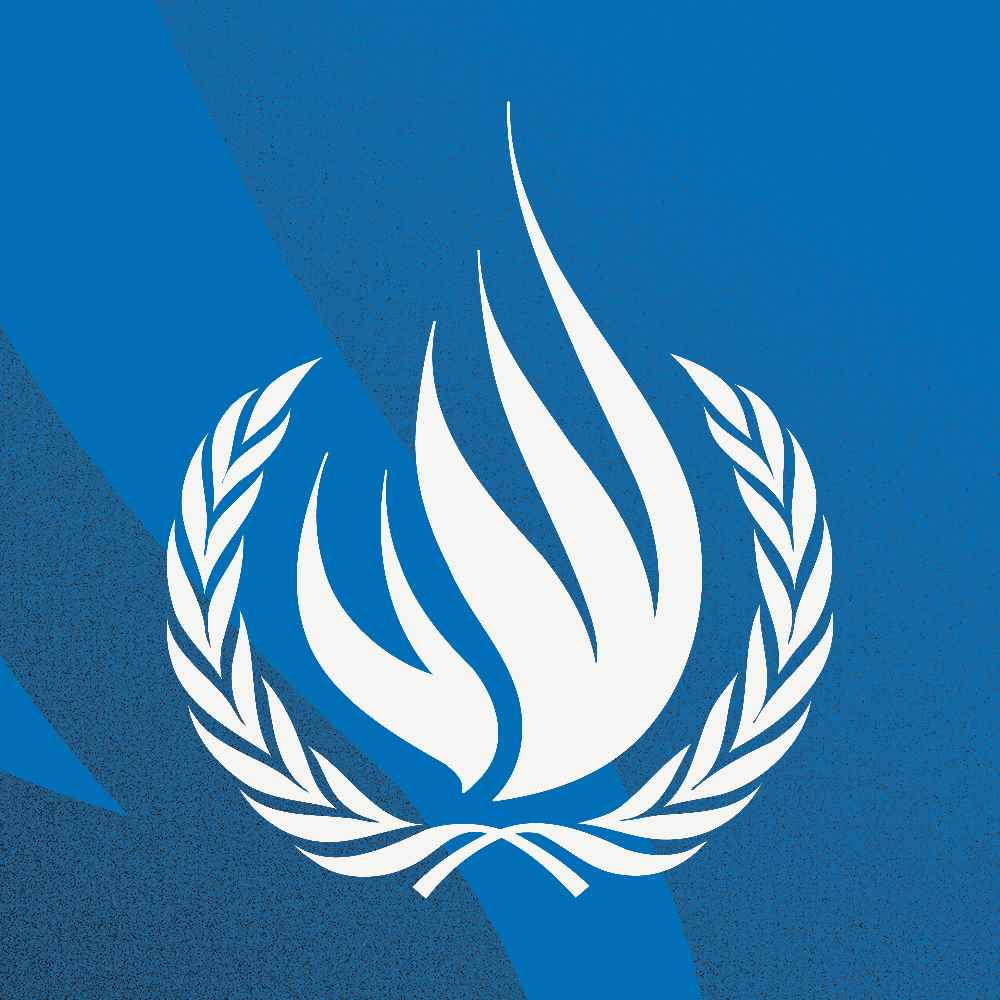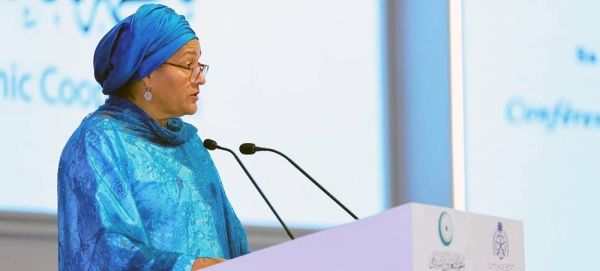
Delivered by
Nada Al-Nashif, United Nations Deputy High Commissioner for Human Rights
At
Panel on quality education for peace and tolerance for every child / 57th session of the Human Rights Council
Madame Vice-President,
Ladies and gentlemen,
Your Excellencies,
Dear children in the audience and online,
Thank you for joining us for what is a very timely discussion.
In a few days, the world will turn its eyes to the Summit of the Future in New York - a once-in-a-generation opportunity for a reset - to enhance unity on critical challenges, to address gaps in global governance and to reinvigorate the multilateral system, which is gravely at risk of unravelling.
Today’s panel connects all three UN pillars. It highlights the centrality of human rights in maintaining peace and preventing conflict, connecting discussions in Geneva with those in New York.
In 2023 alone, 460 million children were living in conflict zones around the world. In addition to experiencing the unspeakable horrors of war, many have been deprived of their right to education -- some, for years on end.
In the aftermath of conflict, societies must find ways to compensate for the lost years of education, providing children that are affected with adequate mental health support and physical well-being. Their resilience and potential must be harnessed to help rebuild their communities and to contribute to lasting peace.
This discussion today is equally relevant and important to countries at peace. No society is immune to hate speech, to misinformation, disinformation and incitement to violence. These elements, if left unaddressed, provide a breeding ground for hateful, divisive, and dehumanising rhetoric, stoking inter-ethnic tensions, and active resistance to gender equality.
So, what can we do, collectively, to strengthen children’s resilience; to critically assess the information that we have altogether; and, to guide their actions towards the promotion of greater understanding and friendship across our diverse societies.
Quality education holds the potential to transform societies: a well-educated population is more likely to be a peaceful one, characterized by social justice, respect for the rule of law and inclusion. This is why this right is embedded in international law and standards.
The Universal Declaration of Human Rights calls upon States to ensure not only children’s access to education, but also to education directed at promoting understanding, tolerance and friendship among all peoples.
The Convention on the Rights of the Child establishes the right to quality education by emphasizing the importance of a balanced approach - one that promotes dialogue and respect for differences while reconciling diverse values.
Empowering children with the knowledge, skills and values necessary to contribute to an equitable society is increasingly acknowledged across all United Nations pillars. The Security Council has reaffirmed the right to education and its fundamental contribution to the achievement of peace and security. Sustaining peace as a central aim of education is also a key feature of the 2030 Agenda for Sustainable Development and the SDGs. It is the foundation of the World Programme for Human Rights Education, which is led by our Office.
To achieve quality education for every child, curricula must be relevant to the social, cultural, environmental, and economic context. It must also take full account of the child’s evolving capacities and ensure that education is meaningful at every stage of development.
In practice, education must provide essential life skills to every child, in addition to literacy and numeracy, such as the ability to make balanced decisions; to resolve conflicts in a nonviolent manner; and to develop a healthy lifestyle, good social relations and responsibility, of course most of all perhaps, critical thinking; giving children the tools needed to pursue their options in life.
Our Office supports human rights education programmes across the world, such as for example, in the southern State of Tamil Nadu, in cooperation with an Indian non-government organisation (People"s Watch), which has empowered students to confront, for example, caste-based discrimination, to uphold their own rights and those of others.
More generally, our Office has also developed a toolkit to inform young people of their rights and support their advocacy. With youth officers based across the globe, from Suva, to Bishkek, the Palestinian West Bank, Dakar and Guatemala, we are working to build the capacity of young people to promote human rights and peace.
I look forward to the ensuing discussion on promising practices, the challenges you have all encountered, and lessons learned in the national implementation of quality education for peace. And I hope the outcomes of today’s discussion will be considered in developing our forthcoming report on this important topic.
Ending cycles of conflict requires us to put human rights at the centre of prevention and peacebuilding. Int these very difficult times, we must go beyond voice to ensure that children are meaningfully included in decision-making and that we can act decisively on behalf of future generations and the planet.







